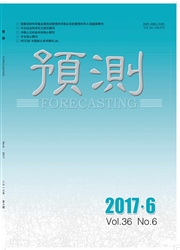

 中文摘要:
中文摘要:
根据罗默(Romer)和卢卡斯(Lucas)提出的新经济增长理论,劳动力成本的上升,伴随着知识的积累与劳动力的专业化将为经济体的转型升级、技术创新、实现内生增长提供机遇和挑战。在新兴加转轨的中国,劳动力成本上升将在经济增长中发挥什么作用?本文利用我国上市公司2001-2013年的样本,从企业增长的视角实证检验了劳动力在"倒逼"我国产业转型升级和驱动经济增长中的重要作用。结果显示:劳动力成本的提升有利于我国上市公司的持续增长;我们对于影响机制的探索发现,技术进步对劳动力投入具有显著的替代作用,在因果关系中发挥了替代效应。本文实证检验了罗默和卢卡斯的新经济增长理论在中国的适用性,并为中国产业升级、结构调整的政策导向提供了新的证据。
 英文摘要:
英文摘要:
According to Romer and Lucas' s new economic growth theory,the rise of the human capital cost will provide opportunities for economic transformation and ungrading,technology advance and endogenous growth companied with the accumulation of knowledge and specialization of human capital. At the transformation period of China,what is the role played by the rise of the human capital cost for promoting the transformation and development of the economy? Based on2001 - 2013 panel data of listed firms in China,this study investigates the function performed by the rise of human capital cost in forcing the transformation and upgrading of China's industry and driving economic growth in a perspective of firm growth. We find that the rise of the human capital cost benefits firm growth. Our explorations to the underlying mechanisms show technology advance has a significant substitution effect on human capital. This paper verifies the applicability of the new economic growth theory in the context of China,and provides new evidence supporting the policy orientation of industrial upgrading,structural adjustment in China.
 同期刊论文项目
同期刊论文项目
 同项目期刊论文
同项目期刊论文
 期刊信息
期刊信息
